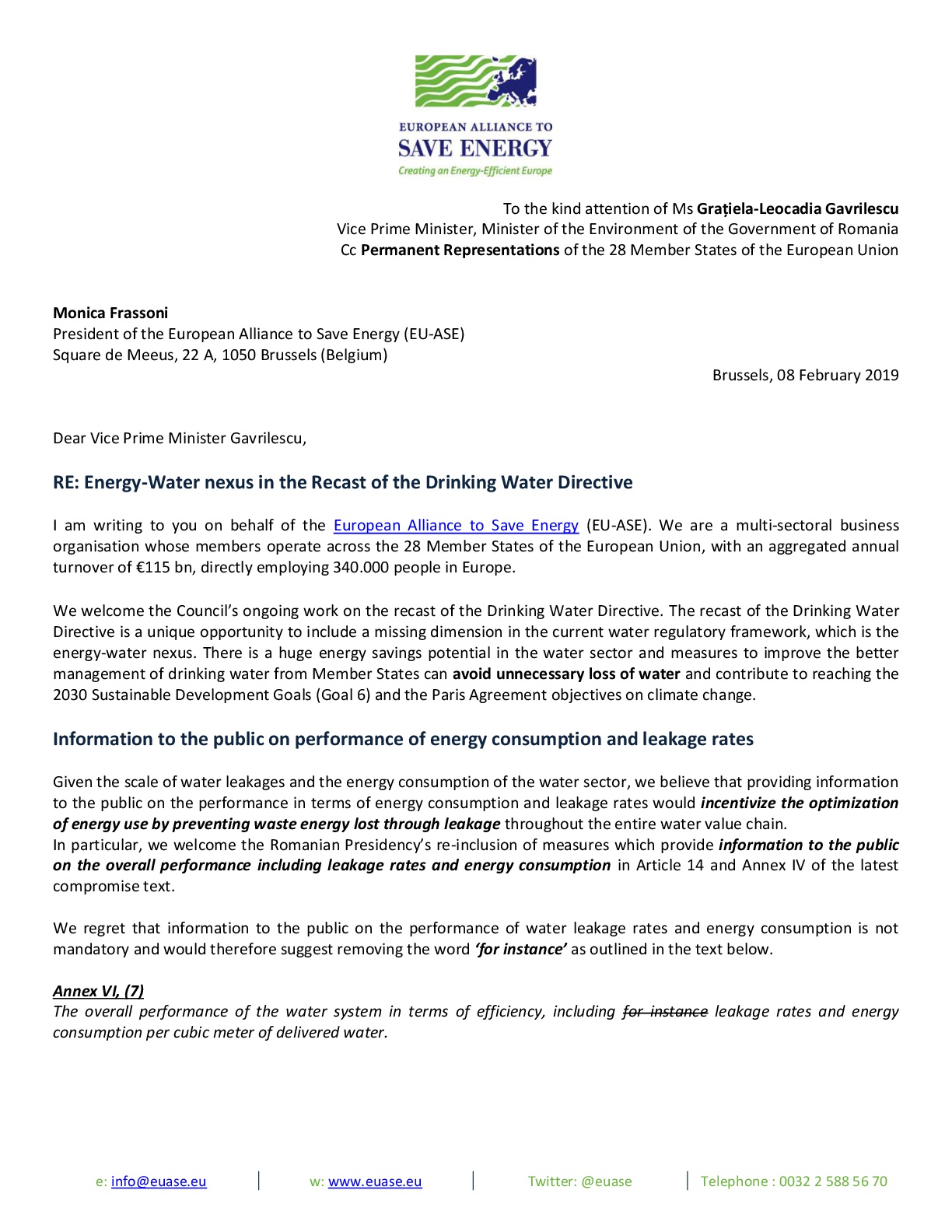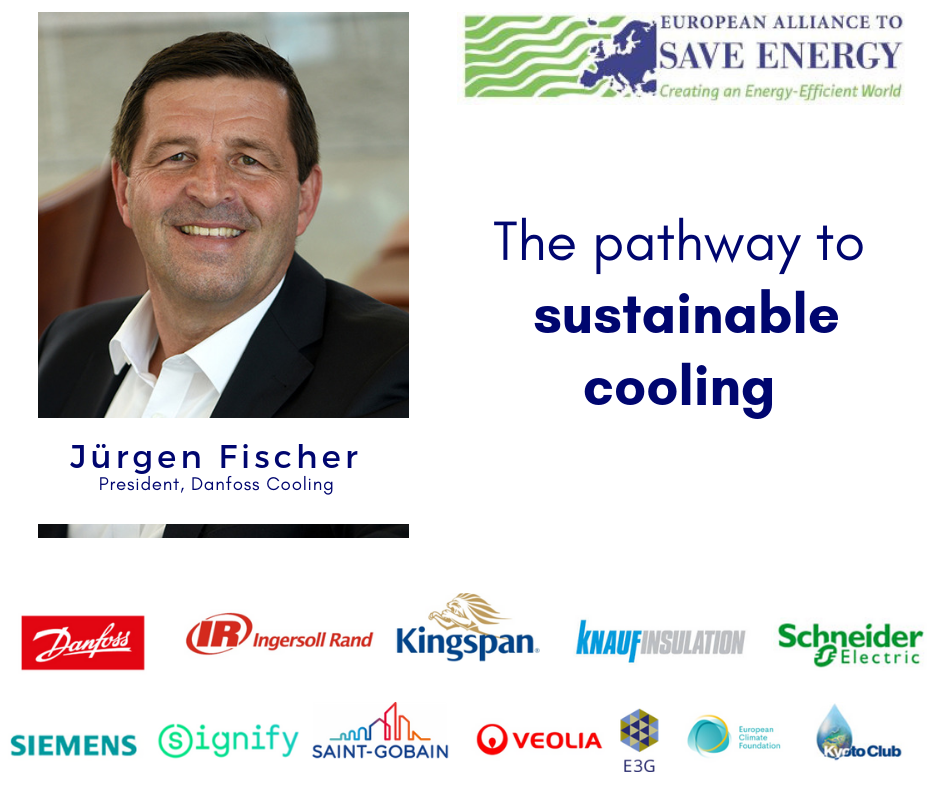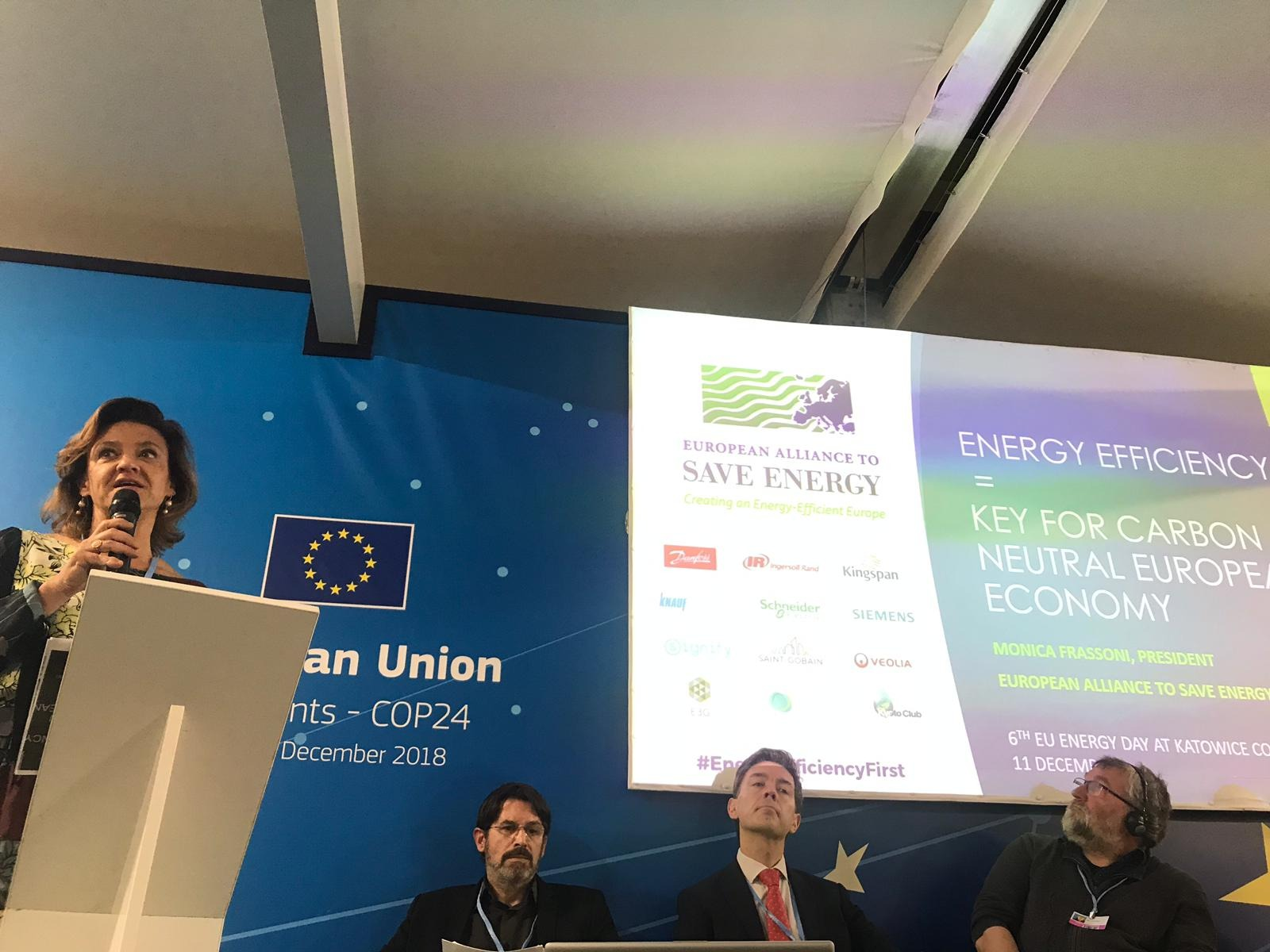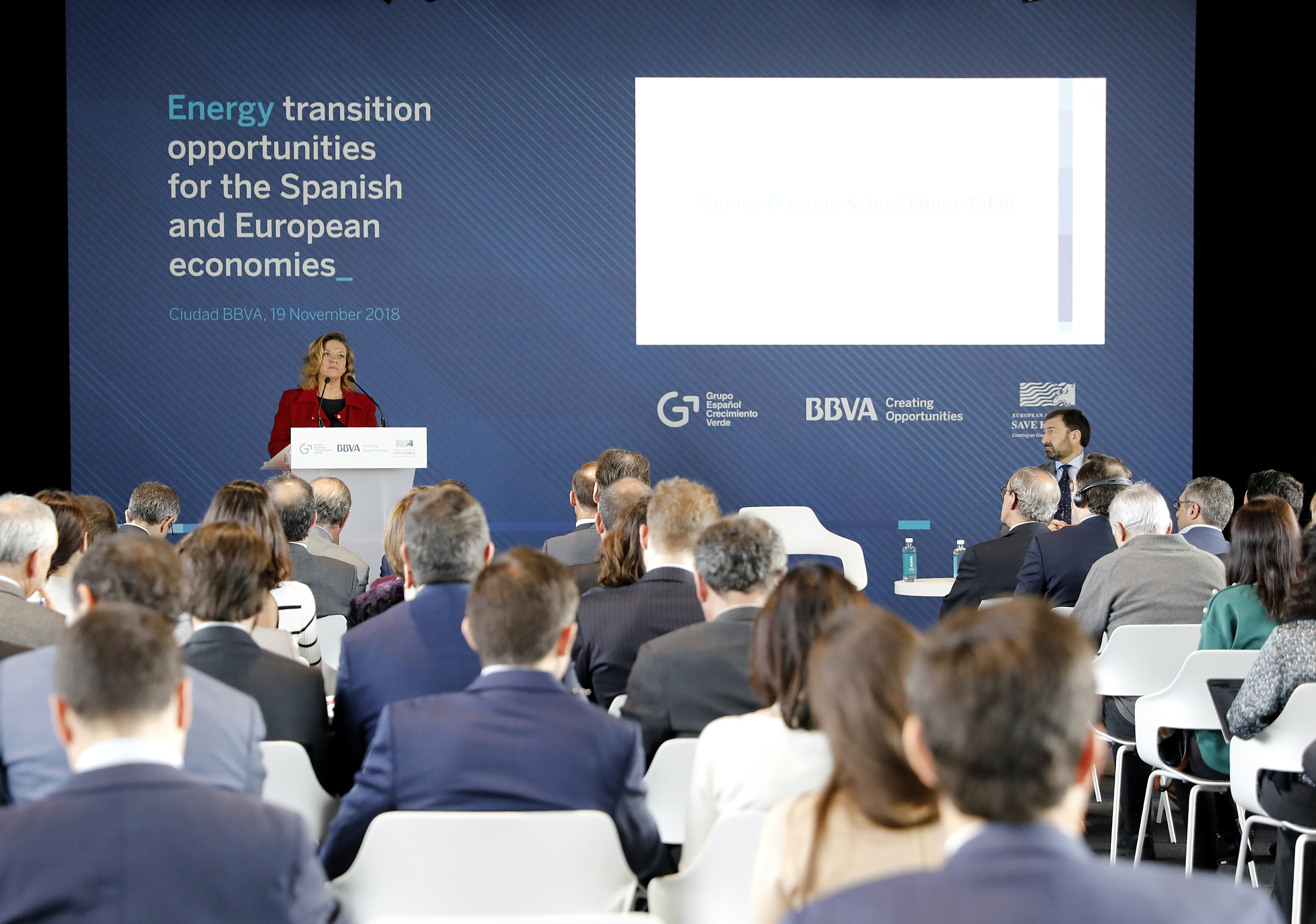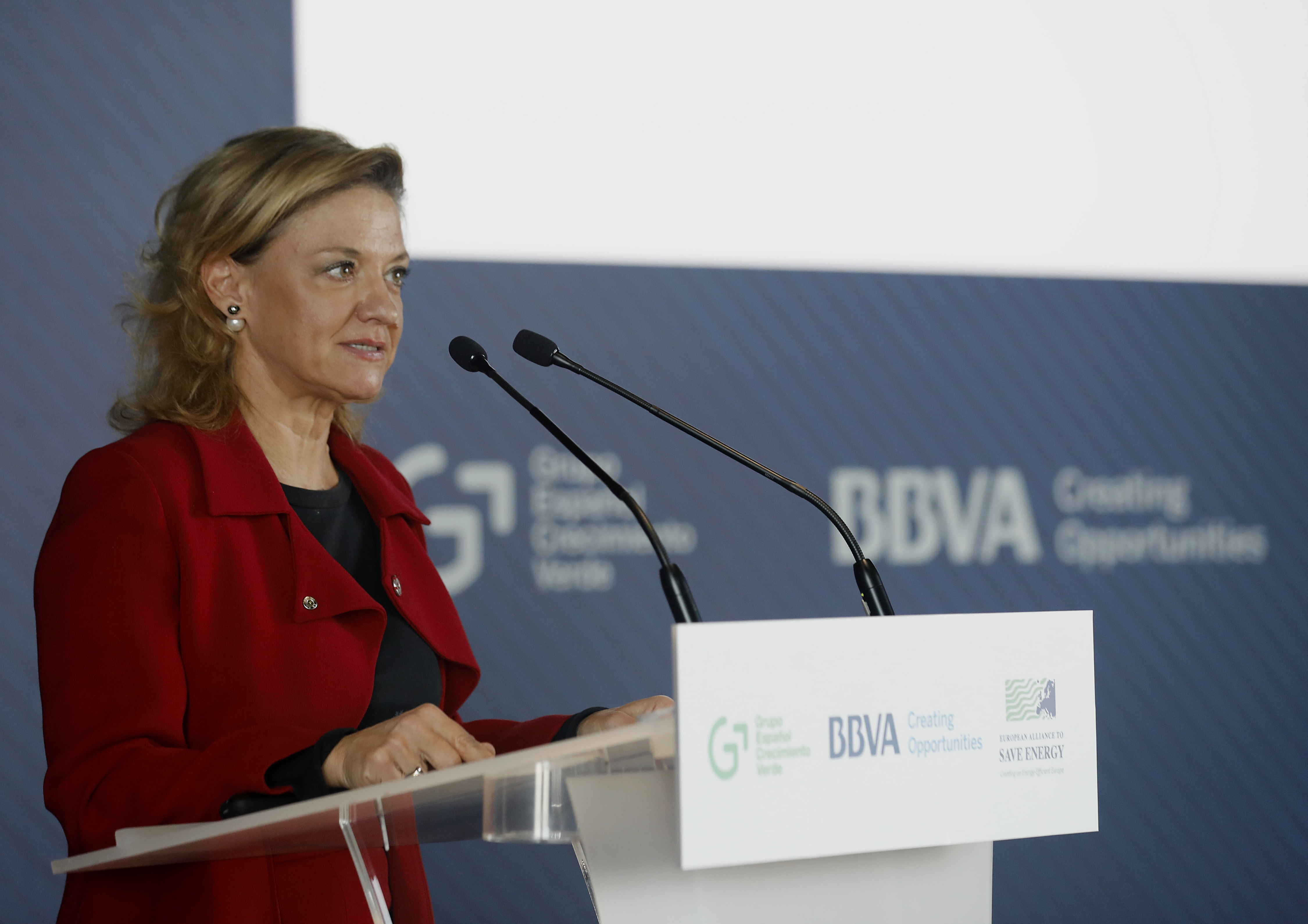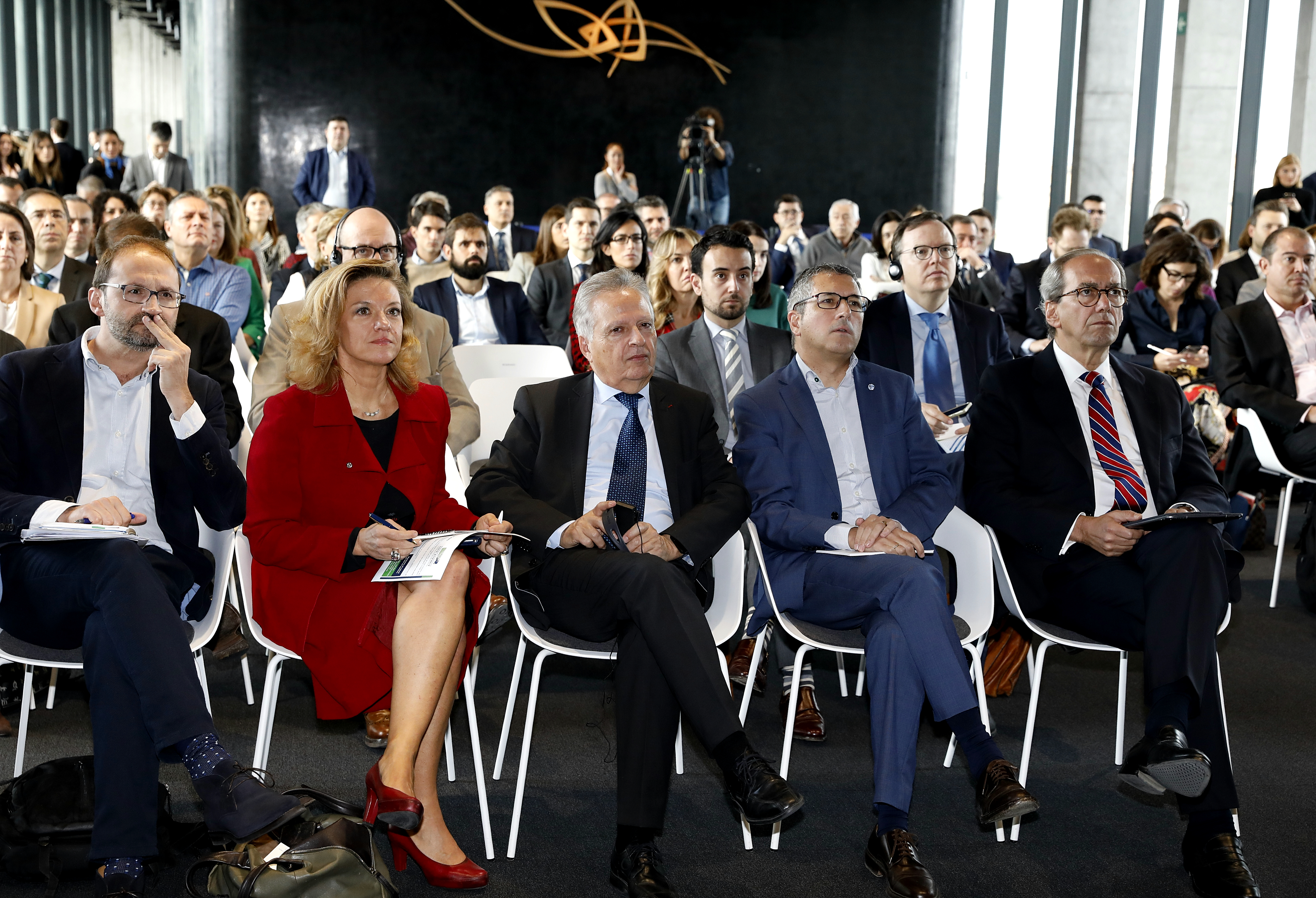Business Alliance call for urgent action on the transition to a climate neutral Europe
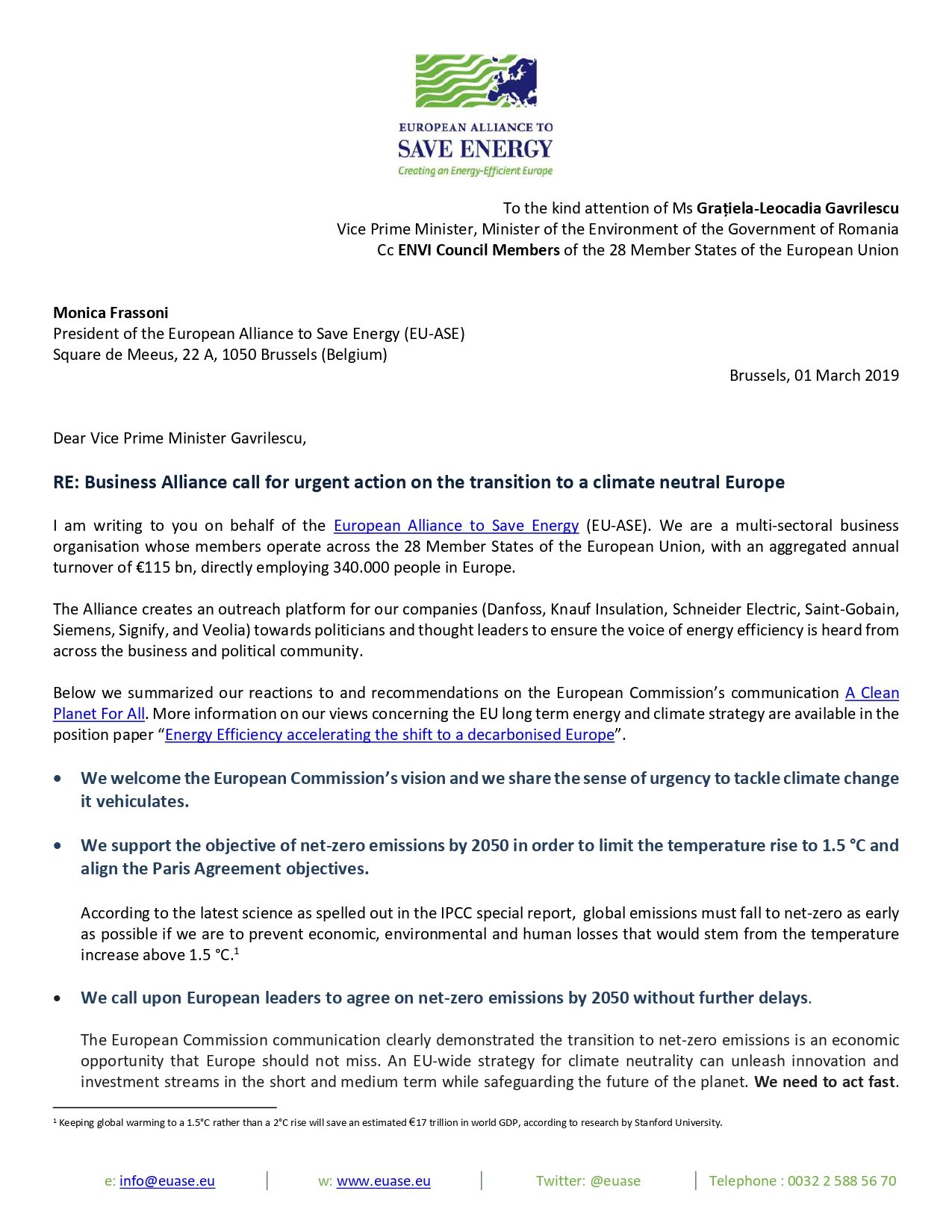
To the kind attention of Ms Grațiela-Leocadia Gavrilescu
Vice Prime Minister, Minister of the Environment of the Government of Romania
Cc ENVI Council Members of the 28 Member States of the European Union
Dear Vice Prime Minister Gavrilescu,
I am writing to you on behalf of the European Alliance to Save Energy (EU-ASE). We are a multi-sectoral business organisation whose members operate across the 28 Member States of the European Union, with an aggregated annual turnover of €115 bn, directly employing 340.000 people in Europe.
The Alliance creates an outreach platform for our companies (Danfoss, Knauf Insulation, Schneider Electric, Saint-Gobain, Siemens, Signify, and Veolia) towards politicians and thought leaders to ensure the voice of energy efficiency is heard from across the business and political community.
Below we summarized our reactions to and recommendations on the European Commission’s communication A Clean Planet For All. More information on our views concerning the EU long term energy and climate strategy are available in the position paper “Energy Efficiency accelerating the shift to a decarbonised Europe”.
- We welcome the European Commission’s vision and we share the sense of urgency to tackle climate change it vehiculates.
- We support the objective of net–zero emissions by 2050 in order to limit the temperature rise to 1.5 °C and align the Paris Agreement objectives.
According to the latest science as spelled out in the IPCC special report, global emissions must fall to net-zero as early as possible if we are to prevent economic, environmental and human losses that would stem from the temperature increase above 1.5 °C.[1]
- We call upon European leaders to agree on net-zero emissions by 2050 without further delays.
The European Commission communication clearly demonstrated the transition to net-zero emissions is an economic opportunity that Europe should not miss. An EU-wide strategy for climate neutrality can unleash innovation and investment streams in the short and medium term while safeguarding the future of the planet. We need to act fast. As the Commission has acknowledged the current 2030 targets are not sufficient to be in line with the Paris Agreement objectives. Therefore, in a 2030 perspective, we need to step up those targets to boost our efforts in terms of policies and investments. This way the EU will continue to prove its global leadership in curbing emissions and reinforcing the business, social and environmental case for climate-change mitigation.
- We strongly endorse the call of the European Commission for energy efficiency to play a central role in reaching net-zero emissions by 2050
Integrating the Energy Efficiency First principle in the long-term EU energy and climate strategy becomes even more urgent if we consider that 76% of EU GHG emissions cuts needed to achieve the Paris Agreement objectives can come from energy efficiency improvements, in particular in sectors with high potential.[2]
Energy efficiency is by far the most cost-effective way to reduce emissions . Yet, when presenting the cost of energy efficiency in the policy scenarios, the European Commission used in its modelling exercise a high 10% discount rate that made the investments look less attractive, while the discount rates applied by Member States across the EU usually range between of 4 to 5.7%. Lowering the discount rate used for modeling purpose would help to promote investments necessary to halve the energy consumption needs by 2050 (as compared to 2005) as announced by the Commission in the LTS.
- We believe that Energy Efficiency First should be considered as a basis of the European long term strategy and the main driver of the transformation towards a fossil–free energy system.
According to the EU’s Governance of the Energy Union Regulation, “Energy Efficiency First” means assessing the potential of energy efficiency in all decision related to energy use. In practice this is about systematically comparing the added value of energy efficiency measures and carbon-neutral energy supply solutions, taking account of benefits such as job creation, economic growth, energy security, improved air quality, and climate mitigation. The Energy Efficiency First principle boils down to making informed choices to invest taxpayers’ money in cost-effective measures. We need to avoid investments in infrastructures that are incompatible with the net-zero ambition and could thus lead to the creation of stranded assets.
- We welcome the call for higher buildings’ renovation rates and the recognition of the role that digitalisation and near zero-emissions buildings will play in the transition.
While it is well established that buildings sector (both the residential and service sectors) will play a crucial role in the reduction of the final energy consumption, the modelled renovation rates in the LTS are not capturing its full potential. The Communication assumes a timid 1.8% yearly renovation rate, which will not be sufficient to achieve the needed transformation of the building stock – 97% of which is still remaining energy inefficient.
We, therefore, urge European leaders to back deep staged renovation of the European building stock and aim to increase the retrofit rate to at least 3% per year. Highly efficient and resilient buildings will also help accelerate the integration of renewables into a flexible and consumer centered energy system.
- We are convinced that the transition is feasible because:
- Reliable and tested technologies exist and are ready to be deployed at scale and across sectors;
- The legislative framework is in place and must be implemented in an ambitious and forward-looking manner;
- Innovative financing mechanisms are available and together with public resources can help mobilize private investments in areas with high mitigation potential.
- We are eager to work together with citizens and decision-makers to support a just transition
A just transition, as spelled out during the COP24, will foster sustainable growth through innovation, knowledge transfer and development of new skills, each of these contributing to the prosperity, health and well-being of Europe’s citizens.
The process to achieve a climate neutral Europe is an opportunity to design an energy transition path that will benefit citizens, businesses and the environment. The European Alliance to Save Energy wants to be part of that process and accompany stakeholders in the definition of the most adequate and enabling policy framework there is.
We encourage you and your colleagues, as a political leaders to endorse the Commission’s strategic vision and notably its ambition of EU climate neutrality by 2050 at the latest.
We wish you a fruitful meeting and remain at your disposition for further discussion on this strategic topic.
We remain at your disposal for further discussion on this important topic.
Yours sincerely,
Monica Frassoni
[1] Keeping global warming to a 1.5°C rather than a 2°C rise will save an estimated €17 trillion in world GDP, according to research by Stanford University.
[2] World Energy Outlook, IEA, 2015, (figure 3.4), p. 76, see at: https://www.iea.org/publications/freepublications/publication/WEO2015SpecialReportonEnergyandClimateChange.pdf

